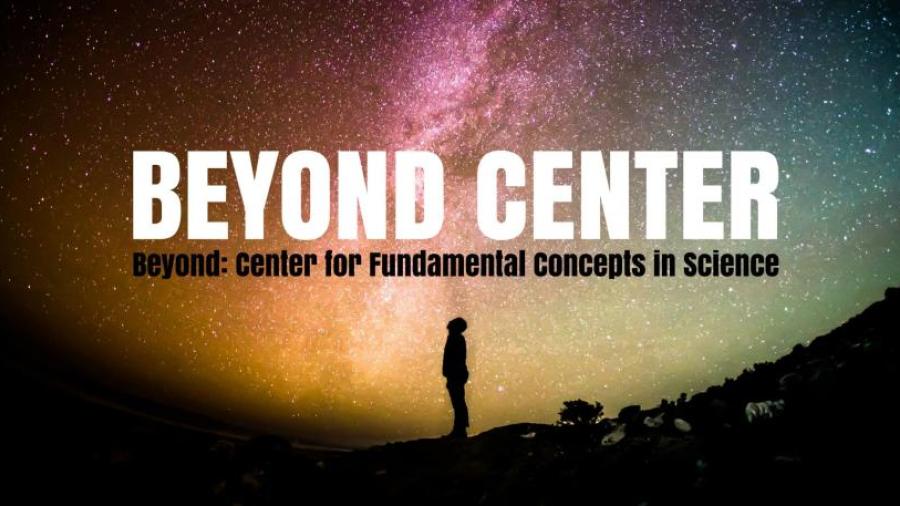
February 15, 2024 at 6:30pm MST
Location Marston Exploration Theater
Since the invention of modern clocks, most of us take for granted the objective, globally synchronized linear nature of time as a given truth about the world. However, conceptual artist and experimental philosopher Jonathon Keats is bending, and perhaps breaking, the modern concept of time by envisaging the perception of time through the experiences of other organisms, which would reveal a radically different temporal reality. “The variety of life dies in temporal monoculture” he says. But what is time anyway? How was our modern concept of time invented, and how does it both limit and expand our understanding of the world? Join theoretical physicist and astrobiologist Sara Walker in conversation with Jonathon Keats for a deep and wide-ranging discussion experimenting with the fundamental nature of time itself, and our relation to it.
This event is co-hosted by the Beyond Center for Fundamental Concepts in Science and the Future of Being Human Initiative at Arizona State University.
More about Jonathon Keats: Jonathon Keats is a conceptual artist and experimental philosopher acclaimed as a “poet of ideas” by The New Yorker and a “multimedia philosopher-prophet” by The Atlantic. He is best known for his large-scale thought experiments. Over his career he has produced a library for extraterrestrial beings (to share resources to overcome common existential threats), made fountains with meteorite-doped water (to induce alien hybridity for shared otherness), made a living calendar with a 5,000 lifespan, sold real estate in the extra dimensions of space-time proposed by string theory (selling 172 extra-dimensional lots in the Bay Area in a single day); and made an attempt to genetically engineer God (the attempt reveals God is most likely related to a cyanobacterium). These and other works have been at dozens of institutions worldwide, from the Los Angeles County Museum of Art to Stanford University to the Triennale di Milano, and from SXSW to CERN to UNESCO. He is the author of six books on subjects ranging from science and technology to art and design – most recently You Belong to the Universe: Buckminster Fuller and the Future. His bold experiments raise serious questions and put into practice his conviction that the world needs more “curious amateurs”, willing to explore publicly whatever intrigues them, in defiance of a culture that increasingly forecloses on wonder and siloes knowledge into narrowly defined areas of expertise.